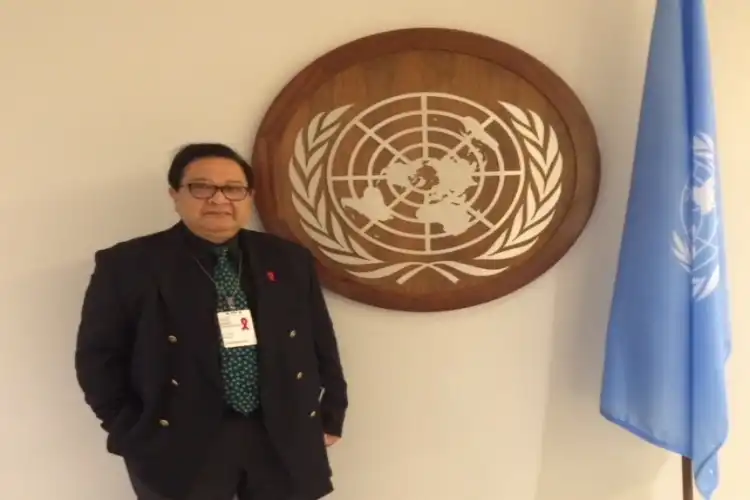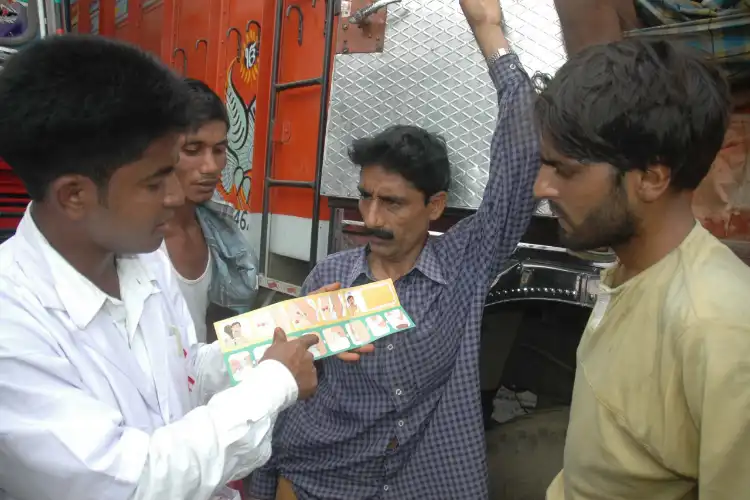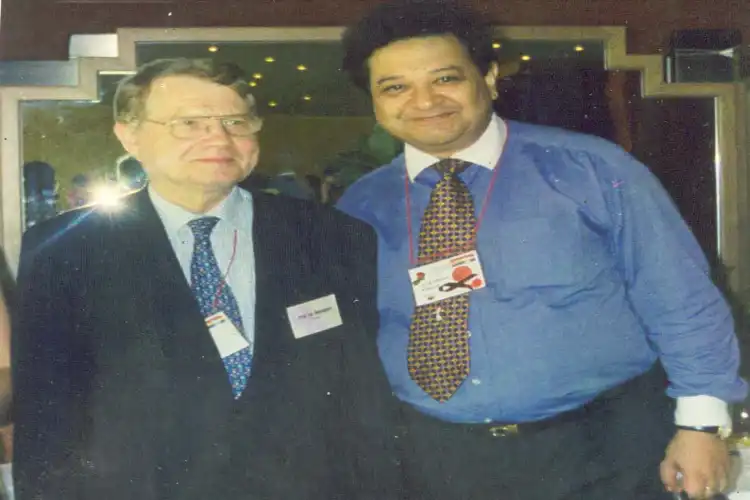Imtiaz Ahmed/Guwahati
When he completed his post-graduation in Medicine from the University of Liverpool, the UK in 1981, Dr Syed Iftikar Ahmed did not have any knowledge about the silent killer called Acquired Immunodeficiency Syndrome (AIDS). However, his inquisitiveness and passion for community medical service made him synonymous with the anti-AIDS campaign not only in India but also in many parts of the world. The award-winning sexagenarian has been given the responsibility by the Assam Government to recommend measures for the improvement of health and healthcare facilities for Muslims.
“I was asked about immunodeficiency disease by an examiner during my post-graduation finals at Liverpool. At that time I did not have any idea about it. But, the question made me inquisitive and out of my curiosity, I started researching it. However, there back then there was hardly any study material on HIV/AIDS,” Dr Ahmed told Awaz–The Voice.
“I visited the United States in 1985 where I came to know about this disease. I visited the National Institutes of Health in the US, one of the world’s foremost medical research centers where HIV co-discoverer Robert Gallo was working. I also happened to attend a workshop on HIV/AIDS where I learned a lot about the killer disease,” he added.
.webp)
Dr Syed Iftikhar Ahmed deliving a lecture
Dr Ahmed, who returned to India in the eighties to start his medical practice, was moved by the plight of economically backward people during the six-year-long Assam Agitation as far as healthcare was concerned. He plunged into community health service and started working in 18 select slums of Guwahati.
“I started free health service along with a few of my fellow doctors for the needy slum people who could not afford to see a medical practitioner. It caught the attention of the Guwahati Municipal Corporation who sought my help in immunisation drives. I also got help from the erstwhile All Assam Islamic Samaj, which had its office premises in the Ambari area of Guwahati. The Samaj asked me to conduct community health camps and other healthcare activities. At one point of time, my private chamber became a community health center, and I also enjoyed serving the people,” Dr Ahmed said.
Dr Ahmed’s community healthcare services included the implementation of a primary health and family welfare program covering lakhs of people in remote areas of the region in five years.
This turned out to be a trailer in the light of what he was to undertake later. His real service to the nation began when the first case of HIV-AIDS was detected in Manipur in 1989. “I started research on the infection among the drug abusers in the northeastern region. I dedicated much of my time to studying the spread of the virus among those abusers who shared syringes for injectable drugs and found that it was quite rapid. At the same time, the spread of the virus among sex workers was detected in Chennai (then Madras). I started comprehensive research on the spread of the virus as well as embarked on a mission to educate the vulnerable people,” Dr Ahmed said.
Truckers being educated on HIV-AIDS
AIDS Prevention Society that Dr Ahmed headed conducted the first knowledge, attitude, belief, and practice (KABP) study for HIV risk among drug users in 1989-1990 and subsequently designed and implemented the first harm reduction project in the country for injecting drug addicts and their sex partners. It also conducted the first KABP study for HIV risk-taking among truckers and sex workers and designed and implemented the first intervention project with truckers in the country.
Dr Ahmed, however, laments the use of spasmo-proxyvon drugs to tackle the withdrawal syndrome of drug abusers. “I consider it a blunder because it led to misuse of the drug as a replacement for the expensive addictions. Some drug abusers misused the drug, which is not water-soluble, by making suspension with water and injecting it into their veins. At least 10,000 such people had to be amputated in Mizoram because the drug caused a major infection on the injected limbs.”
For his work, Dr Ahmed was invited to a national conference in New Delhi in 1991 where he drew the attention of the United Nations. The UN, later on, roped him in as a consultant to educate the teachers of 11 states of eastern India.
Dr Syed Iftikhar Ahmed with Prof Luc Montagnier
On the challenges, he faced in the implementation of AIDS prevention initiatives, Dr Ahmed, who was awarded the UN AIDS award in 2005, said: “Lack of education and awareness, dearth of empowerment among economically backward women who are lured into prostitution and alcoholism and drug abuse were some of the biggest challenges in the initial stage. Some of these persist.”
On his new role as chairman of the Assam government’s sub-committee for healthcare among the Assamese Muslim community, Dr Ahmed said: “There is a lot to do. Healthcare, especially for Muslims, needs immediate attention. The lack of trained health workers among Muslims is a major challenge to be addressed. Without adequate health workers whom the masses would trust, healthcare and awareness cannot be extended to the remote localities.”
Some 20 years ago, Dr Ahmed trained thousands of Muslim and tribal women of Assam as nurses as part of an initiative taken under the banner of Assam Imdadia Hospital Committee ANM/FNW Training Centre and Hospital. The Centre, headed by Dr Ahmed as director, is still producing paramedical personnel catering to various hospitals and healthcare centers across the state.

.webp)


